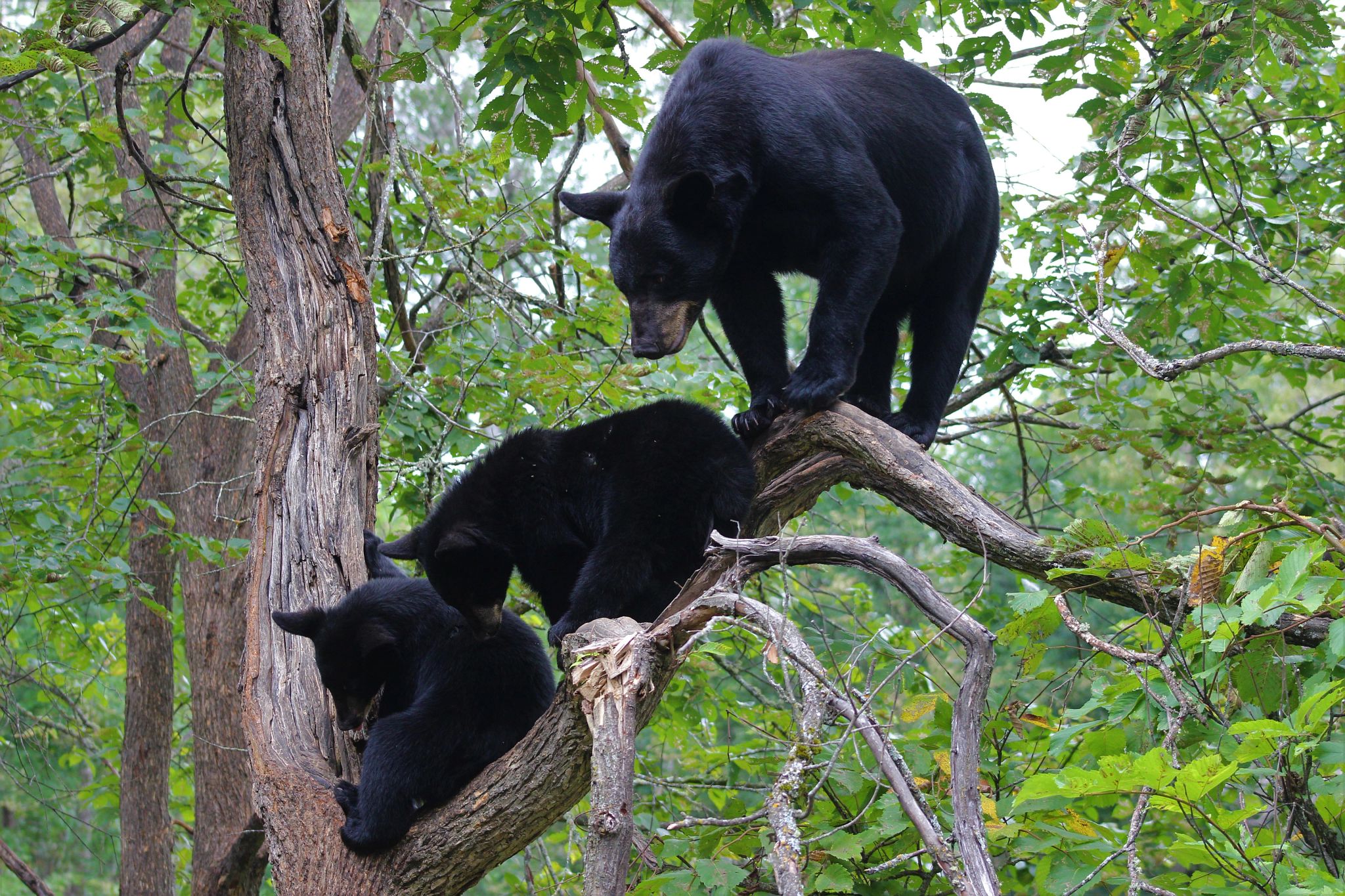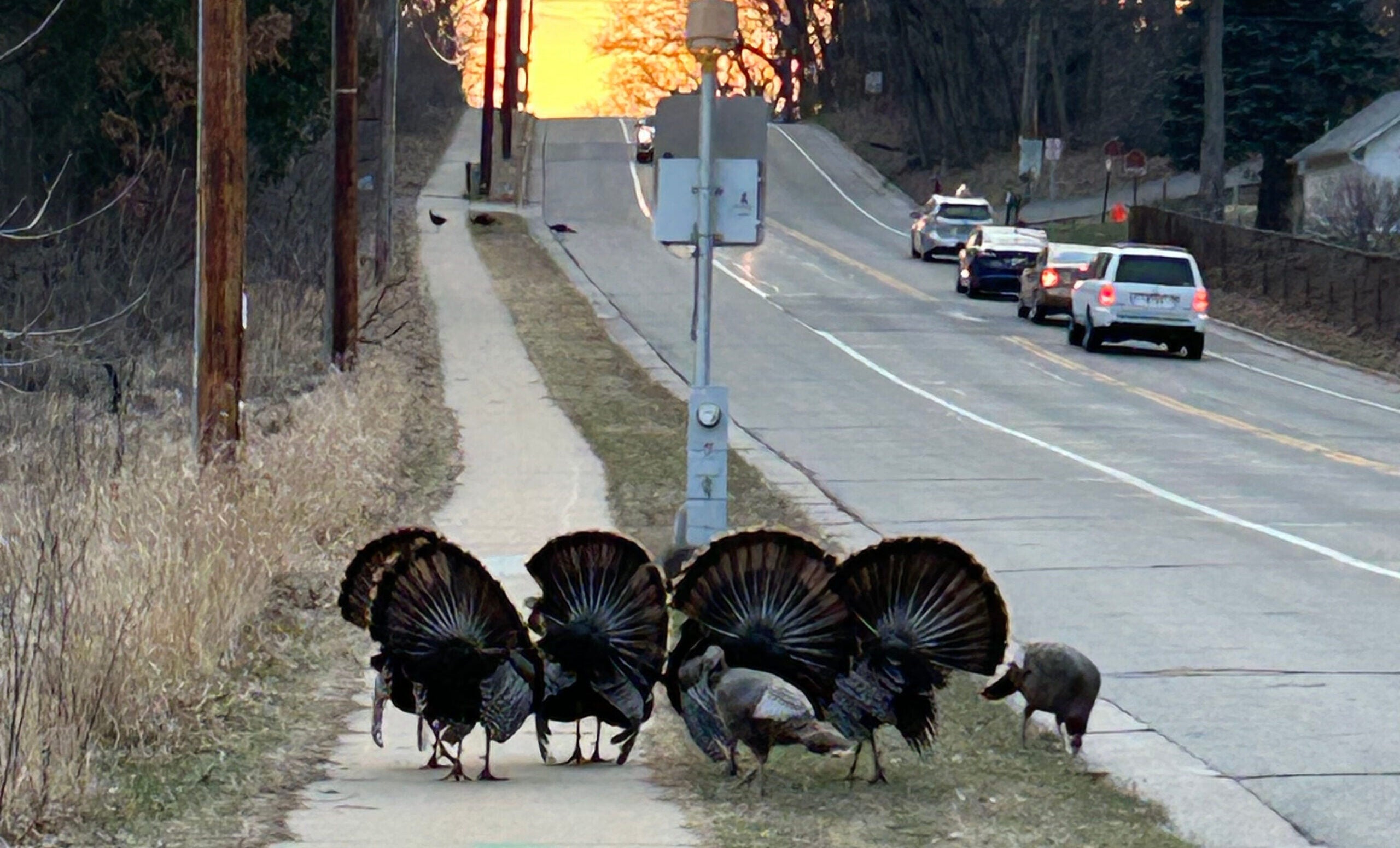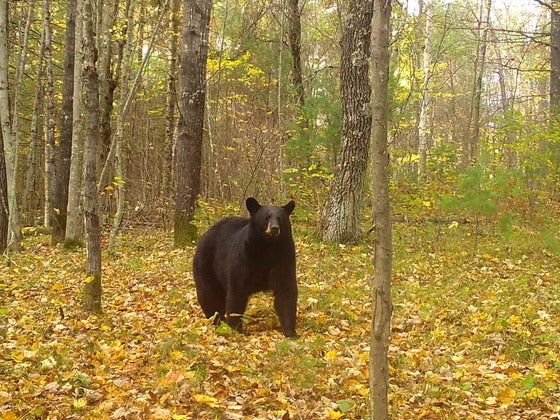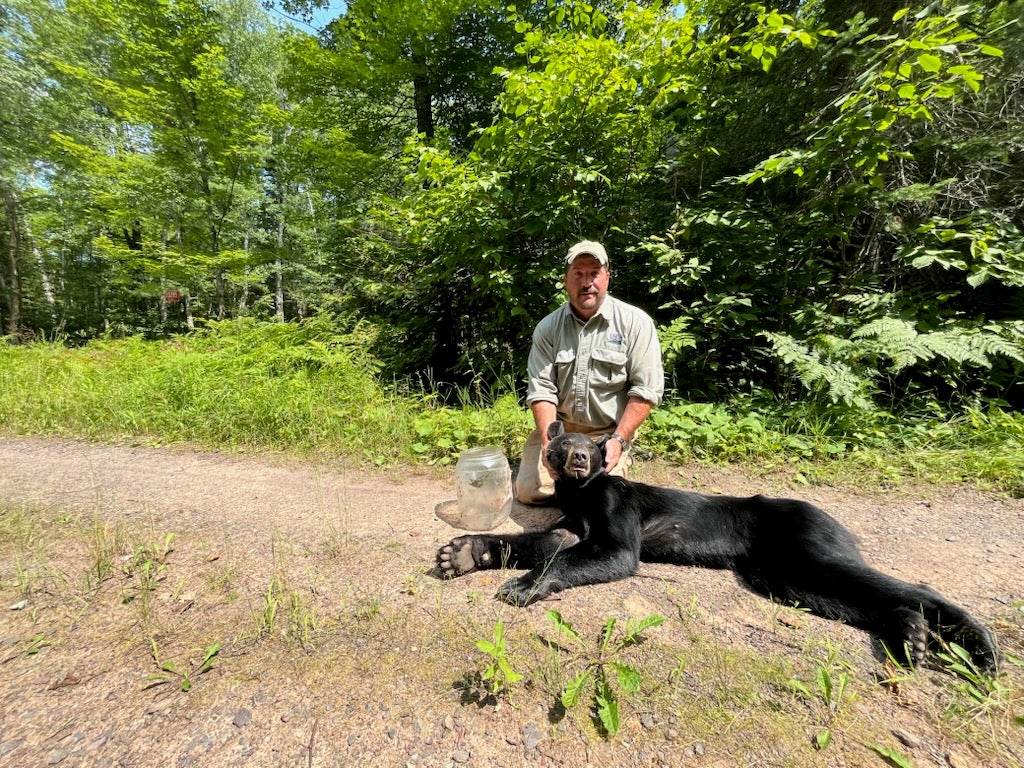As people pull out their grills this holiday weekend, the Wisconsin Department of Natural Resources is urging them to avoid run-ins with any real-life Yogi Bear trying to pilfer food from campers’ picnic baskets.
Black bears are more common in the northern half of Wisconsin, but they’ve been spotted in southern areas of the state like Madison as their population has expanded. The number of bears has almost tripled since 1989 to around 25,000 bears.
While bears are uncomfortable around people, they are often attracted by food that’s readily available. According to the DNR, bears have been able to locate food from over a mile away with a keen sense of smell that’s seven times greater than that of a bloodhound. Brad Koele, the agency’s wildlife damage specialist, said bear conflicts can increase when people are recreating on holiday weekends around Memorial Day or the Fourth of July.
News with a little more humanity
WPR’s “Wisconsin Today” newsletter keeps you connected to the state you love without feeling overwhelmed. No paywall. No agenda. No corporate filter.
“Obviously, it’s springtime of the year. The bears are still hungry as things continue to green up here, so they’re searching for food,” said Brad Koele, the agency’s wildlife damage specialist. “Of course, whether you’re grilling out or have garbage or potentially still have bird feeders out, bears look for those food resources, and that can create conflict.”
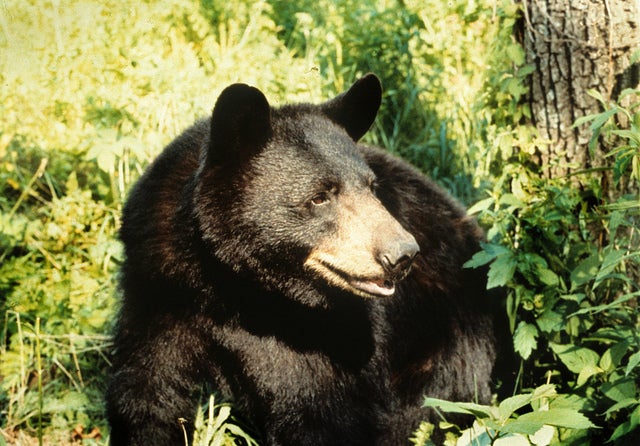
The DNR received 872 bear complaints last year that increased from 801 filed in 2021, but complaints were still down from a record high of 1,439 received in 1995. Koele said the vast majority — around 79 percent — were nuisance complaints.
Most complaints were resolved with a phone call offering advice on how to handle them. The DNR recommends some of the following steps so people can be “smarter than the average bear.”
- Remove bird feeders — even during the day.
- Clean any spilled seed by bird feeders.
- Rinse food cans or utensils before tossing them in the recycling or trash to limit odors.
- Keep garbage cans in a closed building until garbage day pickup.
- Lock commercial dumpsters.
- Keep pet food inside or out of reach.
- Clean grills and picnic tables.
If people are camping, Koele urged them to keep a clean campsite and store food in a bear-proof cooler or a locked vehicle. He said it’s important for people to take steps to avoid conflicts because bears have a great memory.
“If they find a grill or garbage can or some food source, they remember that,” Koele said. “They’re likely to come back to check to see if that food resource is still there.”
He added that it’s even a good idea to have electric fencing around compost piles or chicken coops to deter bears.
Most bear conflicts have centered around tourist hubs in northern Wisconsin from Minocqua in Oneida County to further west like the Hayward area in Sawyer County, Koele said. The DNR trapped and moved 580 bears last year, and around half of them were in Rusk and Sawyer counties. Around 50 bears were killed under permits issued for damage to crops, and four bears were put down last year after attacking livestock or entering places where people live.
If someone crosses a bear’s path, the DNR advises people to stay calm and not approach the animal.
“You never want to corner a bear,” Koele said. “That bear needs to have a clear escape route or path where it can leave that scene.”
Koele said the best thing to do is make loud noises to scare the bear off and back away slowly to a safe location.
If problems with bears persist, people can contact the U.S. Department of Agriculture’s Wildlife Service number at 1-800-433-0663 in southern Wisconsin and 1-800-228-1368 in northern Wisconsin.
Wisconsin Public Radio, © Copyright 2025, Board of Regents of the University of Wisconsin System and Wisconsin Educational Communications Board.

